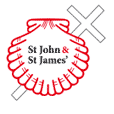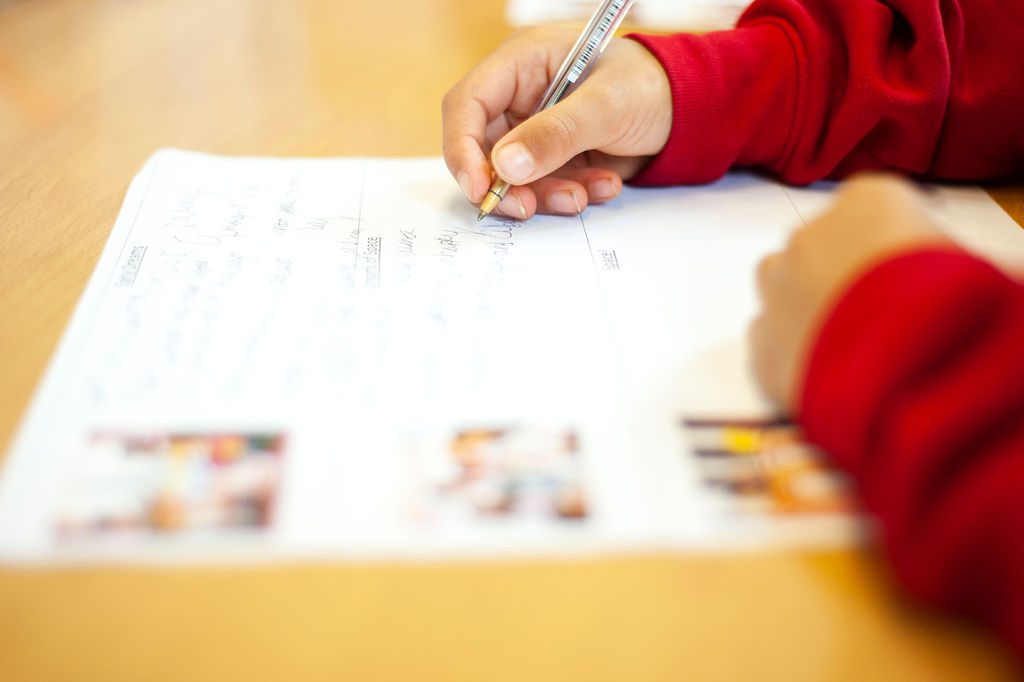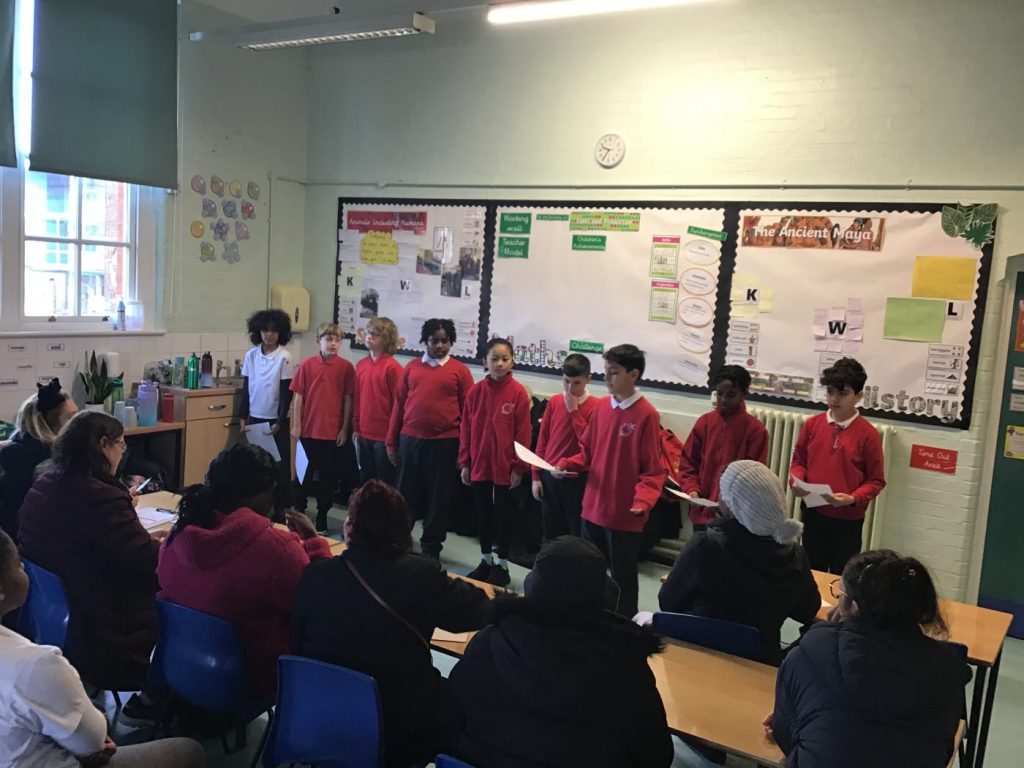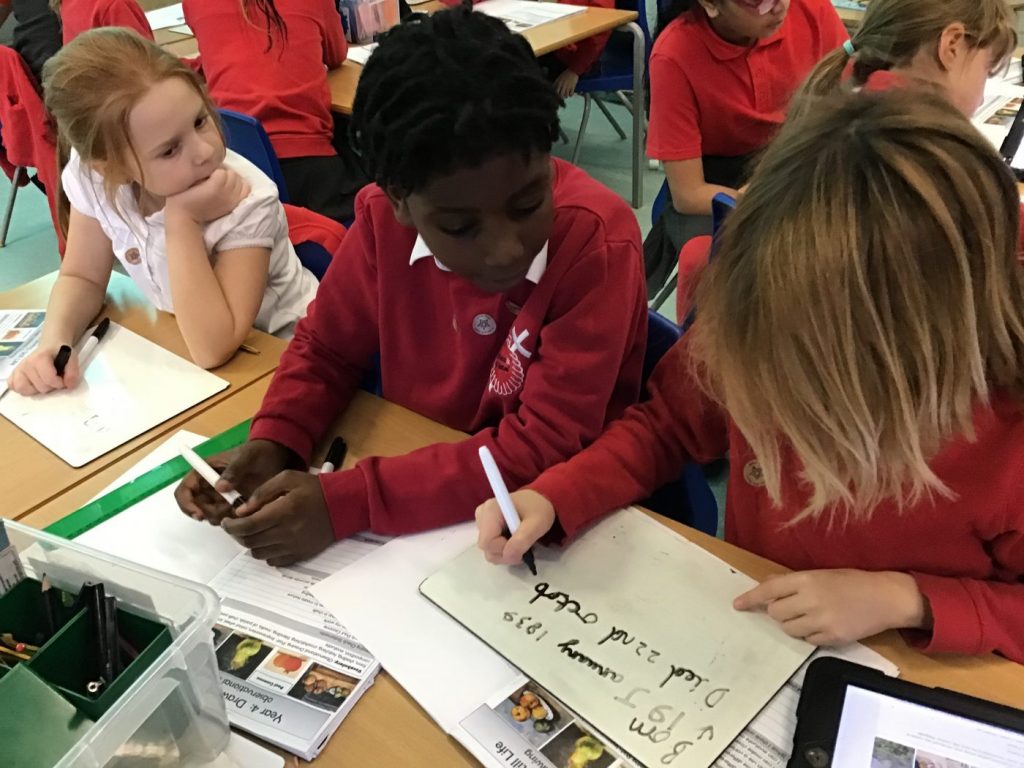Implementation
For further information and examples of the implementation of Oracy at St John and St James, please see our school Oracy Policy.
- As part of our school’s culture of oracy, we have expectations for talk that all of our teaching staff incorporate into every lesson. These expectations are displayed in every classroom and ensure that all voices are heard, in turn developing pupils’ ability to articulate themselves in a clear, coherent manner. Click here to view our; Oracy Expectations for every lesson.
- At St John and St James CoE Primary School, we use a four-strand framework to teach oracy skills, which underpin our school’s Oracy Skills Progression Document. This document outlines the linguistic, physical, cognitive and social/emotional skills, which are taught in each year group from Nursery to Year 6. Click here to view our; Oracy Progression Document.
- Purposeful, rich opportunities for talk are planned across all subject areas. Subject leaders and class teachers collaborate on ideas for using purposeful talk effectively in the classroom and these are written into medium term plans across the curriculum. These talk opportunities include presentations, debates, partner talk and group work, hot seating, discussions around key texts and performances.
- Pupils develop their oracy skills outside of the classroom in the following ways: being part of a student leader group such as The Green Team or Digital Leaders; class assemblies; whole school performances; using structured talk in the playground and debates in whole school assemblies.
- We use the Seesaw app across the school to record our pupils’ verbal reflections on their learning and share this with parents. We also use these recordings as an assessment tool to show progress in students’ oracy skills over time and reflect on areas of development.
- We adopt a “No Hands Up” policy at St John and St James and use lollypop sticks in all classrooms to ensure every voice is heard and all children have the opportunity to verbally articulate their reflections on their learning.
- Explicit teaching of vocabulary, clear sentence stems, meaningful talk opportunities and high quality modelling from adults ensures all children develop their oracy skills and are fully supported to do so.
- All classes have key-stage appropriate talk guidelines. These are displayed in the classroom and consistently referred to whenever a pupil is engaging in any activity requiring speaking and listening skills.
- Click here to our EYFS talk guidelines.
- Click here to our KS1 talk guidelines.
- Click here to our KS2 talk guidelines.
- Teachers are trained and highly skilled in the implementation of oracy and whole-school CPD has been prioritised to support and develop the teaching of oracy skills across the curriculum.
Early Years
Communication and language is one of the three prime areas within the Early Years Foundation Stage. This is divided into three Early Learning Goals: Listening and Attention, Understanding and Speaking. In the Early Years, children learn the fundamental principles of dialogue, including taking turns to speak; speaking at an appropriate volume and body language for active listening, including looking at who is talking to you and showing eye contact. The children begin to use talk in meaningful partner talk, group work and class discussions. They build on their ability to articulate themselves in full sentences, using conjunctions to develop their opinions on their learning and the stories they read in class. By the end of reception, the children are able to offer explanations for why things might happen, making use of recently introduced vocabulary from stories, non-fiction, rhymes and poems when appropriate; with high quality modelling and support from adults in the classroom.
Key Stage One and Key Stage Two
- Children are assigned Partner A or Partner B in all lessons. They are given clear talk roles, sentence stems and explicit vocabulary teaching in order to promote meaningful conversations, which deepen understanding.
- ABC cards are used across the curriculum, where children show a coloured card, which corresponds to whether they would like to accept, build on or challenge the opinion of their peers or the class teacher. These cards are used as an assessment tool, as well as an opportunity to open up class discussion and provide children with ample opportunities to respectfully challenge the opinion of others.
- In Key Stage One and Key Stage Two, children are taught discrete oracy lessons, where children develop the ability to present or debate about an area of their humanities learning. In these lessons, the pupils focus on a strand of the talk guidelines, such as “I use my voice,” and hone in on exactly what effective use of one’s voice looks like, whilst providing feedback to others. In these lessons, they build up to a presentation or debate, which they perform in the final lesson of the half term.
- Each term, we invite our parents into class and the children share a presentation or debate with them. The parents then provide feedback on the pupils’ oracy skills, based on the school talk guidelines and suggest individual targets for the upcoming term.
- Oracy homework is set each half term, where children work on their oracy skills at home through being provided with a “talk task” that they prepare at home. They then film their homework and share it with their class teacher on the Seesaw app. All pupils’ homework books have a copy of the school Talk Guidelines, so our wider school community are aware of the skills the children are working on in school.
Impact
The impact of oracy being embedded into both the culture and curriculum at St John and St James CofE Primary School is evident in the way our pupils articulate themselves. They are polite, eloquent and confident speakers, who engage appropriately in discussions both inside and outside of the classroom, as a result of the explicit teaching of talk, through high-quality talk opportunities. Children and adults consistently refer back to the school talk guidelines and use these as a point of reflection on pupil progress. Teachers use the talk guidelines, the oracy skills progression document and evidence recorded on Seesaw to assess the children’s progress, provide feedback and plan for next steps.






